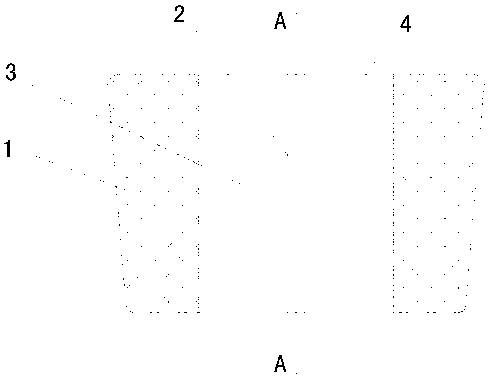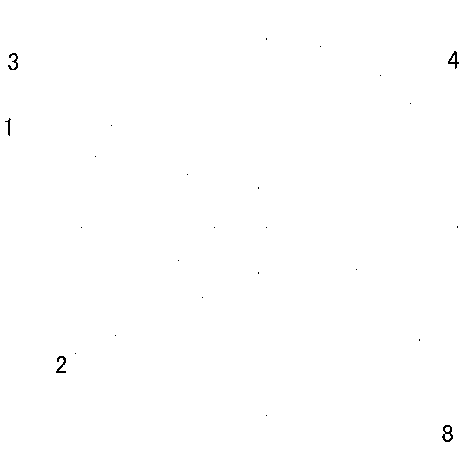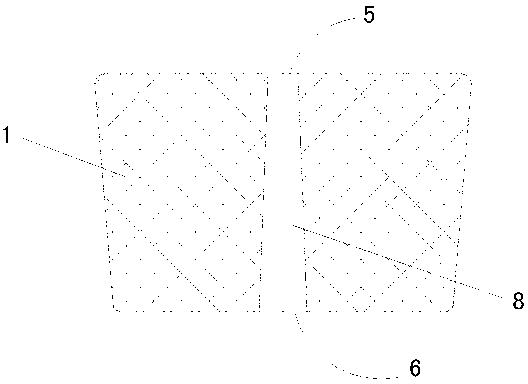Three-dimensional cell co-culture model based on PDMS (polydimethylsiloxane) and preparation method thereof
A three-dimensional cell and co-cultivation technology, applied in tissue cell/virus culture devices, biochemical equipment and methods, biochemical instruments, etc., can solve the problem of not being able to meet the co-culture interaction at the same time, and achieve easy control and repeatability. , the effect of simple process
- Summary
- Abstract
- Description
- Claims
- Application Information
AI Technical Summary
Problems solved by technology
Method used
Image
Examples
experiment example 1
[0034] Experimental example 1: The three-dimensional cell co-culture model based on PDMS is applied to the co-culture of two kinds of cells in the horizontal direction and the interaction between the two is observed.
[0035] Put this model body 1 into the 6-hole plate and press it tightly so that the bottom is close to the bottom of the 6-hole plate, and two cuboid-shaped stoppers 7 are respectively close to the two sides of the opening 8 of the compartment 2 to form a In one space, inject 20ul Matrigel (BD Company, USA) into the space, incubate at 37°C for 1 hour to solidify, and take out the cuboid-shaped stoppers 7 on both sides after the Matrigel solidifies. At this time, two culture pools, namely the right culture pool 4 and the left culture pool 3, are separated by the solidified Matrigel.
[0036] One type of cell is inoculated into the left culture pool 3, and the other type of cell is inoculated into the right culture pool 4. The culture fluid of the two can pass thr...
experiment example 2
[0038] Experimental Example 2: The model of the present invention is applied to the experiment that one kind of cell (or components in the culture medium) affects another kind of cell's three-dimensional shape and movement.
[0039] The model placement and cell inoculation methods are the same as in Experimental Example 1. Inoculate one kind of cell (or a culture solution containing a certain component) into the culture tank on the left side, and inoculate another kind of cell into the culture tank on the right side, you can dynamically observe the effect of the former on the latter, and make the latter move into the Matrigel The influence of growth and migration, so as to observe the changes in the three-dimensional shape and movement of cells. It is suitable for experiments such as cell migration, chemotaxis, invasion, angiogenesis of vascular endothelial cells in vitro, and tumor cell invasion.
[0040] For example, glomerular endothelial cells were inoculated in the right...
PUM
 Login to View More
Login to View More Abstract
Description
Claims
Application Information
 Login to View More
Login to View More - R&D
- Intellectual Property
- Life Sciences
- Materials
- Tech Scout
- Unparalleled Data Quality
- Higher Quality Content
- 60% Fewer Hallucinations
Browse by: Latest US Patents, China's latest patents, Technical Efficacy Thesaurus, Application Domain, Technology Topic, Popular Technical Reports.
© 2025 PatSnap. All rights reserved.Legal|Privacy policy|Modern Slavery Act Transparency Statement|Sitemap|About US| Contact US: help@patsnap.com



